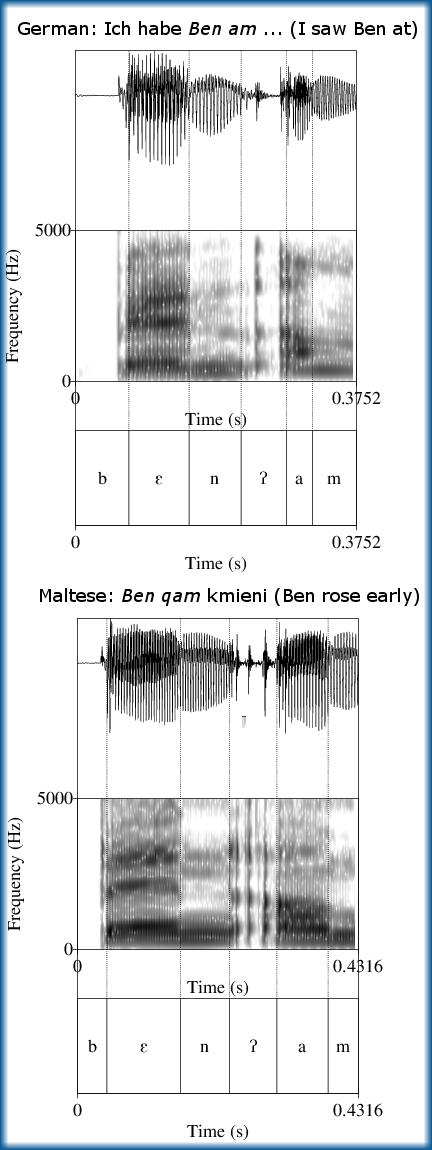The southernmost European psycholinguist
My carrier has followed a north-south pattern. After studying in Bielfeld, Germany (52.0°N),
I moved south for my PhD in Maastricht, The Netherlands (50.8° N) and then north again (51.8° N) to
Nijmegen, The Netherlands, for a position at the Max Planck Institute for Psycholinguistics.
This has hence been an international career, but, geographically, it was quite limited. spanning only 1.2° degrees of latitude.
The next move had to be south again, and it is, only slightly further this time: to 35.9°N.
Here I an now an associate professor at the Department of Cognitive Science of the University of Malta. If you are
interested in how life is on my Malta, have a look here
Over the last years, my work has focused on the architecture of spoken-word recognition, with a special focus on the lexical and pre-lexical representations involved.
(Mitterer, Scharenborg, & McQueen, 2013, Cognition; Mitterer, Kim, & Cho, 2016, Journal of Phonetics, these collaborators' names providing a hint where this picture to the left was taken). I recently also foray into
areas that are obvious when working on Maltese, such as perception of consonant clusters (Maltese has clusters of glottal and oral stops as in qtates Engl., cats),
gemination, and morphological decomposition. My interest in speech perception has also led to forays into other domains, such as speech production (Mitterer & Müsseler,
2013, AP&P) and colour perception (Mitterer & de Ruiter, 2008, Psychological Science).
On this page, you'll find a short bio and some "featured" research.


